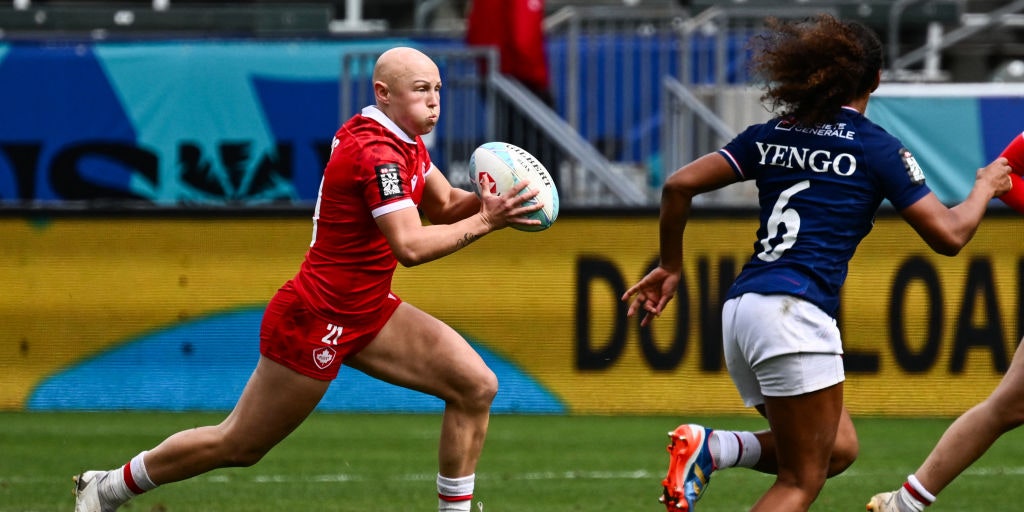Watching Olivia Apps bulldoze her way past opponents is a sight to behold. The 25-year-old rugby sevens player’s unrelenting speed and strength have set the tone for a momentous Olympic effort by the Canadian team, which captured the silver medal on Tuesday in the 2024 Paris Games.
Apps, the team captain, also happens to have alopecia, an autoimmune disease that caused her to lose her hair when she was growing up in Ontario. The condition, which is due to an immune attack on follicles, can sometimes be so severe even a person’s eyelashes and eyebrows may fall out.
Apps started losing her hair when she was just seven years old, she told CBC, and it took doctors nearly a year to diagnose her. Although it was challenging, she says the experience helped give her a positive perspective on her body, Apps said. “I lost my hair at a young age and that was probably actually a great time for me,” she told CBC. “Because I think if I were in high school or my 20s, that would be a different set of challenges. But when I was younger, I quickly understood what it meant to be comfortable in my own skin.”
As a kid, Apps tried wearing a wig but ultimately decided not to. “Even though I was only seven years old, I knew there was something so powerful in just being able to say, ‘Hey, this is who I am and I don’t actually care what anyone thinks,’” she told CBC.
While acknowledging that awareness of the disease is still lacking—Apps is often asked if she is undergoing chemotherapy or if she shaves her head—the rugby star aims to help people to better understand the condition by sharing her experience in interviews and on social media.
Two years ago in a World Rugby film, Apps shared her journey and spoke about the importance of using her platform to challenge stereotypical beauty standards. “I think that young women need to have more women in these kinds of spaces showing them that you don’t have to look a certain way to be beautiful or to be accepted or to be loved or find belonging,” Apps said. “I think a lot of women in these spaces, like myself, hopefully are breaking these barriers.”
For Apps, the path to Paris included a terrifying encounter outside the sport. Just six weeks before the start of the Olympic Games, Apps and a friend were hiking with their dogs at Elk River Trail in Strathcona Provincial Park in British Columbia, Canada, when a cougar attacked them. After spraying the cat with bear spray, the pair and their dogs managed to escape. Apps had to be treated for a cougar bite (as did one of the dogs) after they were air-lifted out of the park, according to Victoria’s Times Colonist. Just days later, she was back training with the team.
Canada’s run in Paris was the country’s best yet for the sport at the Olympics. Eight years after capturing bronze in the Rio Games in 2016, the squad notched one upset after another until the much-anticipated final against defending champions New Zealand. On Tuesday, Canada earned a silver medal against the Black Ferns with a score of 19-12.
Though nothing is ever certain at the Olympics, Apps predicted the squad’s elevated performance in Paris. “We’re not seven individuals—we’re playing as a team. We’re always trying to get better. We’re always trying to uplift the standards. And we think about the legacy that we have in this jersey,” Apps told Olympics Canada.
That cougar didn’t stand a chance.
SELF is your one-click source for all things Summer Olympics. Read our latest coverage of the Paris Games here.
Related:
- Here’s How You Get 10,000 Swarovski Crystals on a Teeny Tiny Leotard
- 13 Olympic Athletes’ Manicures That Work Hard and Play Harder
- A 14-Year-Old Just Won Gold in Skateboarding—With a Trick She Learned in Elementary School
Get more of SELF’s great journalism delivered right to your inbox—for free.

